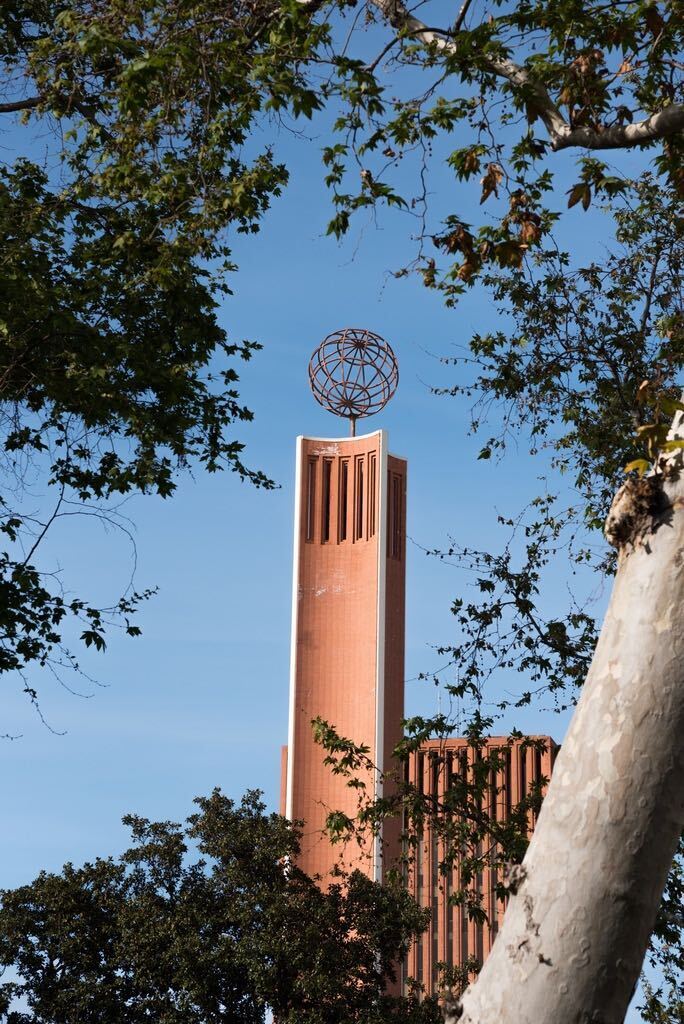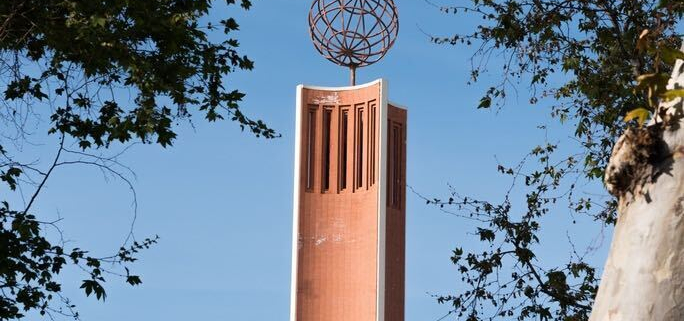International students at risk of deportation, barred entry in the fall due to new ICE visa policies

International students pursuing degrees in the United States will have to leave the country or risk deportation if their universities’ plans for the fall return comprise only online courses, Immigration and Customs Enforcement announced Monday. The move impacts international students who are either still residing in the United States or who have traveled to their home countries during the ongoing coronavirus pandemic and are planning on returning.
In the past few weeks, USC has made changes to its original plans for the fall semester, announcing that most classes will take place online and encouraging students to reconsider their arrangements to live on or near campus. This decision reverses announcements made earlier in the summer in which USC pledged to hold mostly hybrid courses for students, blending in-person and online instruction.
In a news release, ICE announced that students under F-1 and M-1 visas may not take a full course load online while remaining in the United States and that the U.S. Department of State will not issue visas to students enrolled in fully online schools and programs.
“Active students currently in the United States enrolled in such programs must depart the country or take other measures, such as transferring to a school with in-person instruction to remain in lawful status,” ICE wrote. “If not, they may face immigration consequences including, but not limited to, the initiation of removal proceedings.”
The statement also announced that students at universities that, like USC, are using a hybrid learning system cannot take all of their classes online. USC told the Daily Trojan that it is aware of the situation and is “deeply troubled” by the new policy.
“Given the broad range of courses being offered, both in person and online, we are optimistic we will be able to support our international students to study in person safely if they wish, but it may take a few days,” USC wrote in an email to the community Wednesday.
The University also wrote that deans and administrators are strongly advocating against the policy, alongside higher education professionals across the country.
“This policy is especially concerning as it comes in the midst of a global health pandemic when universities need the autonomy and flexibility to adopt nuanced, multi-faceted models of instruction and research while preserving the health, safety and well-being of all our students, faculty, and staff,” USC wrote.
At USC, the Marshall School of Business has already announced that all classes will be online for the fall, and the School of Cinematic Arts announced that all classes but one will be held online. The University said it would update the WebReg class registration system this week to reflect which classes will take place online and which will be in person.
According to Politico, the policy changes mark a distinct reversal from an announcement by President Donald Trump’s administration in early March when the Department of Homeland Security said students would be temporarily allowed to take online courses because of the unprecedeted nature of the pandemic. ICE’s Student Exchange and Visitor Program said that because of the coronavirus, temporary exemptions regarding online classes for summer semesters remain in place.
In Fall 2019, international students represented 25% of the student body. As a part of Project Restart, USC’s blueprint for the fall semester return in accordance with public health guidelines, administrators informed students that professors will record classes and make them available to watch asynchronously for students living in different timezones.
Some schools, such as the Annenberg School for Communication and Journalism, have already reached out to concerned students, pledging to work with the international student body on ways to configure schedules that can potentially include in-person instruction through field research and independent projects. Morteza Dehghani, an associate professor of psychology and computer science, and Leslie Berntsen, a psychology lecturer, wrote in tweets that while they await next steps from the administration, both professors would be willing to offer in-person independent study courses to help international students stay in the United States.
These professors echo calls from other faculty across the country scrambling to help students who face deportation. However, plans remain tentative, and many of USC’s other programs have yet to respond to the policy shift.
Jay Goldstuck, a rising senior majoring in film and television production who hails from South Africa, said she is scared for the future following SCA’s announcement that all production classes will be held online.
“My main reaction is just terrified because the wording of the update was pretty serious in that students who don’t comply with leaving the country will face removal proceedings, which is basically being deported,” Goldstuck said. “That makes it harder to get future visas.”
Goldstuck said she is also confused because there aren’t any commercial or emergency repatriation flights from the United States to South Africa.
“It’s not like I can book a flight — there aren’t even emergency flights or repatriation flights being offered at the moment, so even if I really wanted to leave, I couldn’t,” she said. “But I don’t want to leave.”
The decision also creates uncertainty for incoming international students set to live in USC housing and for returning international students who have already signed leases with off-campus housing providers. Incoming freshmen will not be able to defer their acceptances except in specific cases, including medical issues, religious obligations or required military service. Goldstuck has already signed a lease for the upcoming school year, which adds onto her stress over the lack of health insurance she has in her home country.
“I already signed a lease and my whole life is here; my friends are here; my mental health support system is here,” she said. “I have health insurance here, I don’t have health insurance in South Africa. So with COVID, that’s really scary if I were to go back and potentially get coronavirus and not have health insurance. Everything that’s important is here, even my money, bank accounts and phone contracts … I’ve kind of left my life in South Africa.”
Goldstuck said she is currently looking to the Office of International Services and USC for guidance, though she said OIS has not been helpful in the past. But since University staff has been working from home and campus is not accessible to many international students at this time, the way forward is uncertain. OIS is, however, hosting a webinar for international students Tuesday to discuss the fall semester, travel restrictions and embassy closures.
Anushka Sapra, a rising senior majoring in international relations and political economy, already signed a lease to live off campus this semester. Since March, Sapra, who is originally from Bangalore, India, has been living in California for the past few months, and is frustrated with the reasons laid out by ICE for students to return to their home countries.
“I saw this for what it is … basically it has nothing to do with health and safety and any real concern with the pandemic, because this is very clearly a political move; it’s just another effort for the U.S. government to execute more atrocious immigration laws,” Sapra said.
Sapra said she is terrified and believes that the alternatives provided by ICE prove that there is little care for public health. Students either have the option to leave the country — which Sapra said causes more air travel during the pandemic — or transfer to another school that has in-person instruction — which Sapra said there are very few of, and a move that further damages the health of at-risk students.
“I have all of my bank account information here. My phone, my therapy, my counselor, my friends are here,” Sapra said. “My family moved after I moved to college, so if I went back home, I would be going to a city that is a) in lockdown and b) where there is no one I know … and that’s just really scary. I’ve avoided going back home these past three years, because I was genuinely creating a life for myself here, and that’s now being thrown under the bus.”
Sapra feels that the United States is disappointing thousands of students who pay to attend U.S. colleges, work and pay taxes in the United States and contribute to the U.S. economy. Sapra also said she made the difficult decision in March to stay in the United States and wait out the pandemic — being away from family and friends back home for months — because she knew it would be difficult to reenter the country in the fall. Now, she feels like she is being forced out.
“The U.S. in 2020 is the only country that really punishes you for not being American — it’s like not being an American is a crime, no matter how valid your existence is here, no matter how valid your existence in this country is, no matter how many hoops you had to jump through to secure that, no matter how hard you worked to give yourself the opportunity to come here,” she said. “None of that matters because the passport you have is not American.”
Sapra, along with some international students, are looking to USC, not the government, for next steps and clarity on their status in the United States. Sapra said as a university that prides itself on diversity and geographic representation, she hopes the administration will fight for students and think of creative ways to keep students in the country.
“It’s disappointing to see that [we] are being punished despite doing everything right,” Sapra said. “And not being cared for by a government that should be caring for you because you are here.”
This story was update on July 8 at 10:35 a.m. with a statement from USC.

